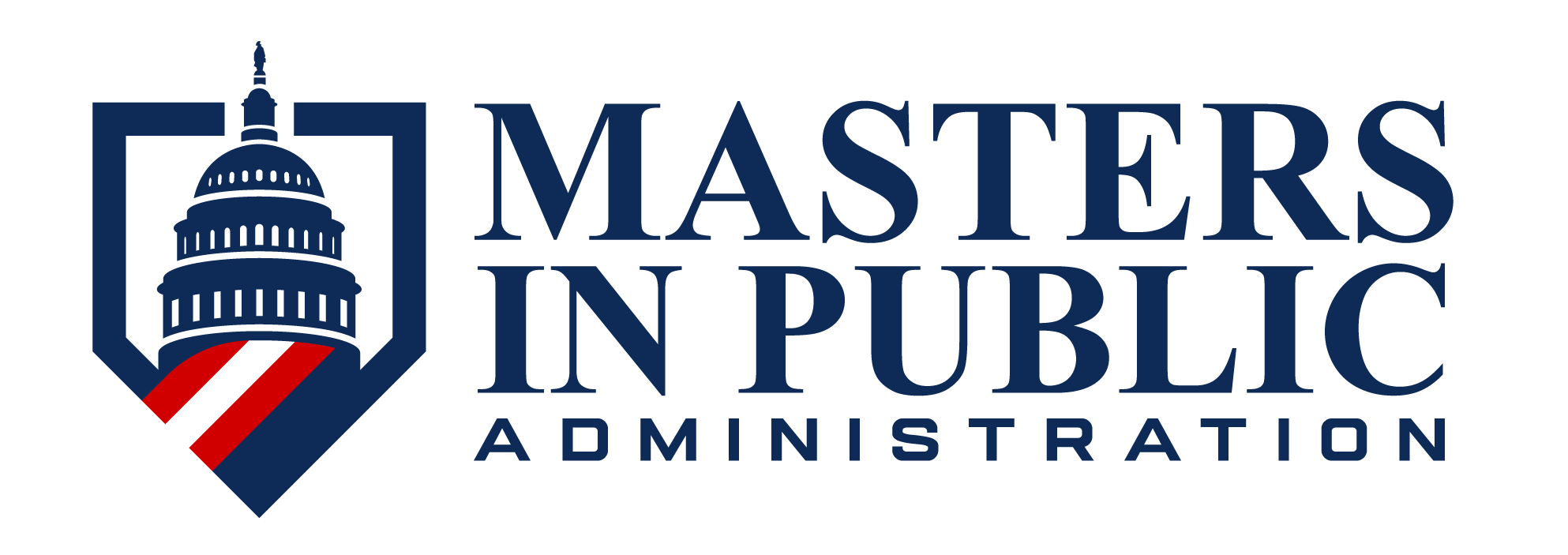Introduction
Being a Public Administration graduate student in the state of Pennsylvania offers a distinct combination of academic excellence, historical richness, and diverse professional opportunities. Renowned institutions such as the University of Pennsylvania and Carnegie Mellon University provide top-tier programs, ensuring a high-quality education for aspiring public administrators.
The proximity to the state capital, Harrisburg, provides students with direct exposure to state government operations, fostering a deeper understanding of public administration in a legislative context. On the east coast, job opportunities are diverse, ranging from urban policy roles in Philadelphia to positions in healthcare administration and environmental policy.
Key State Takeaways:
- Total MPA Programs Statewide: 10
- NASPAA-Accredited Programs: 4
- Annual Resident Tuition Average: $12,500 (PYR)
- Annual Non-Resident Tuition Average: $23,796 (PYR)
- Program Formats Offered: On-campus, online, hybrid
- Average Starting Salary: $74,200
ADVERTISEMENT
Walden University
Online Public Policy and Administration Programs
Walden University’s Public Administration programs are taught by a distinguished faculty of scholar-practitioners, many of whom have senior-executive experience in government and public service. Programs include:
Arizona State University
Online Master of Public Administration (MPA)
ASU’s Online Master of Public Administration provides students with a curriculum that covers leadership strategies, ethical decision-making, and effective management across various organizations.
Liberty University
Online Master of Public Administration (MPA)
Liberty University’s Master’s Degree in Public Administration Online is designed to equip students with a thorough background in the theories and practices essential for success in government and nonprofit roles. MPA areas of focus include:
Southern New Hampshire University
Online Public Administration & Political Science Degrees
Stand up and be counted with a degree in public administration/political science from Southern New Hampshire University—and learn how to facilitate change from within the system. Program offerings include:
NASPAA-Accredited MPA Programs in Pennsylvania
Students in Pennsylvania seek Master’s in Public Administration (MPA) programs accredited by NASPAA for several compelling reasons. NASPAA accreditation serves as a mark of quality assurance, indicating that the program adheres to rigorous standards in curriculum design, faculty qualifications, and student learning outcomes.
For students, this accreditation provides confidence in the program’s academic excellence and ensures that they receive a high-quality education in public administration. Here’s an overview of the four NASPAA-accredited institutions in Pennsylvania, including estimated tuition costs calculated on a per credit hour basis.
Pennsylvania State University – Harrisburg
- Harrisburg, PA.
- 39 Credit Hours
- Online + Campus
Program:
School of Public Affairs
Program Overview:
The Penn State Harrisburg MPA (offered through the School of Public Affairs) is a NASPAA-accredited program designed for students interested in public management, health and human services, government, and nonprofits. It blends theoretical foundations with applied practice, including internships or capstones, and offers flexibility via mixed modalities: online (World Campus) and residential (on-campus).
Unique Components:
- Internship requirement: (150 hours) for students who lack relevant supervisory/managerial/professional administrative work; waiver possible with prior experience or relevant work during enrollment.
- Flexible schedule: Full-time or part-time study; multiple start semesters; summer courses available; online option supports working professionals.
Key Data Highlights:
- Format: Online, On-campus
- Accreditation: NASPAA
- Credit Hours: 39
- GRE: Contingent on GPA
- Resident Tuition: $559 (PCH)
- Non-Resident Tuition: $1,037 (PCH)
- Acceptance Rate: N/A
- Enrollment: 179 students
Other Considerations:
- Internship waiver is possible for students with prior relevant public administration experience; this helps reduce time or cost if one already has managerial or administrative work experience.
- World Campus (online) students represent a large majority of enrollment, meaning many peers may be working while studying.
University of Pittsburgh
- Pittsburgh, PA.
- 48 Credit Hours
- Campus
Program Overview:
The University of Pittsburgh’s MPA is offered via the Graduate School of Public & International Affairs (GSPIA). The program aims to prepare students for leadership in government, nonprofit, and private sectors, especially in policy, planning, management, and public service. Students choose among several concentrations, complete required core coursework, undertake an internship, and often engage in applied research or field projects. The program emphasizes social equity as a foundational value in public management.
Unique Components:
- Multiple Concentrations: Students can specialize in Energy & Environment; Governance & International Public Management; Policy Research & Analysis; Public & Nonprofit Management; Social Policy; Urban Affairs & Planning.
- 300-Hour Internship Requirement: All students must complete a significant internship (300 hours) under GSPIA’s approval process.
- Joint / Dual Degree Options: Joint degrees with Law (JD), Public Health (MPH), Information Science (MSIS), Social Work (MSW), etc.
Key Data Highlights:
- Format: On-campus
- Accreditation: NASPAA
- Credit Hours: 48
- GRE: Not required
- Resident Tuition: $890 (PCH)
- Non-Resident Tuition: $1,079 (PCH)
- Acceptance Rate: N/A
- Enrollment: N/A
Other Considerations:
- Because of its location in the City of Pittsburgh and GSPIA’s connections (e.g. the University Center for Social and Urban Research, local government, nonprofits), there are great opportunities for real-world application and research in urban affairs and policy.
- The strong emphasis on social equity as a guiding value in the curriculum may align well with students interested in justice, community development, and inclusive policy.
Villanova University
- Villanova, PA.
- 39 Credit Hours
- Online + Campus
Program:
Masters of Public Administration
Program Overview:
Villanova’s MPA program aims to develop ethical, creative, inclusive, and intelligent leaders in public service through a practical curriculum, faculty engagement, strong community partnerships, and both online & on-campus delivery. The program serves students working (or wishing to work) in local, state, and federal government, nonprofits, and private sector roles. Flexible scheduling allows live synchronous classes in online formats, or in-person, or flexible hybrid (“Flex”) formats.
Unique Components:
- Electives & Certificates: Electives tailored to trends, faculty interests, and student career goals. Certificate options in Nonprofit Management, City Management, etc., can be done in conjunction with or as part of the MPA.
- Combined Bachelor-MPA Option: Undergraduate students may apply to a combined Bachelor-Master MPA program, taking up to 9 graduate credits during senior year which count toward both degrees.
Key Data Highlights:
- Format: Online, on-campus
- Accreditation: NASPAA
- Credit Hours: 39
- GRE: Optional
- Tuition: $940 (PCH)
- Acceptance Rate: N/A
- Enrollment: N/A
Other Considerations:
- Because the internship can be waived for experienced professionals, the program offers flexibility in student cost, time, and workload.
- Live synchronous online classes mean you engage in real time with peers and instructors rather than purely asynchronous content. That can matter for networking, interaction, and sense of cohort.
West Chester University
- West Chester, PA.
- 39 Credit Hours
- Online + Campus
Program:
Department of Public Policy and Administration
Program Overview:
West Chester University’s MPA (offered through the Department of Public Policy & Administration, in the College of Business & Public Management) is a professional degree designed for individuals with or without work experience. It equips students with administrative, management, and policy-analysis skills to lead in public, nonprofit, and private sectors. The program is NASPAA-accredited and offers flexible formats including fully online, hybrid, and face-to-face instruction to suit working professionals.
Unique Components:
- Three Concentrations: General Public Administration; Nonprofit Administration; Public Management.
- Graduate Certificates: Offers graduate certificates in areas such as Food Policy, GIS, Sports Management & Athletics, Urban & Regional Planning, etc., many of which can overlap with elective choices in the MPA.
- Internship or Professional Seminar: Internship is required for pre-service students (those with less than one year of relevant post-baccalaureate experience), or they may take a professional seminar otherwise.
Key Data Highlights:
- Format: Online, on-campus
- Accreditation: NASPAA
- Credit Hours: 39
- GRE: Not required
- Resident Tuition: $516 (PCH)
- Non-Resident Tuition: $774 (PCH)
- Acceptance Rate: N/A
- Enrollment: N/A
Other Considerations:
- Core courses include 7 foundational courses (the administrative core), covering topics like public budgeting & finance; human resource management; sector organization theory; and nonprofit foundations.
- Students with relevant post-baccalaureate professional experience may have the internship requirement waived.
- Transfer credits are allowed (up to about 20-30% of required credits) under certain conditions.
ADVERTISEMENT
Walden University
Online Public Policy and Administration Programs
Walden University’s Public Administration programs are taught by a distinguished faculty of scholar-practitioners, many of whom have senior-executive experience in government and public service. Programs include:
Arizona State University
Online Master of Public Administration (MPA)
ASU’s Online Master of Public Administration provides students with a curriculum that covers leadership strategies, ethical decision-making, and effective management across various organizations.
Liberty University
Online Master of Public Administration (MPA)
Liberty University’s Master’s Degree in Public Administration Online is designed to equip students with a thorough background in the theories and practices essential for success in government and nonprofit roles. MPA areas of focus include:
Southern New Hampshire University
Online Public Administration & Political Science Degrees
Stand up and be counted with a degree in public administration/political science from Southern New Hampshire University—and learn how to facilitate change from within the system. Program offerings include:
Non-Accredited Schools
In Pennsylvania, several well-regarded NASPAA-accredited programs are available at institutions like the University of Pittsburgh and Penn State, but non-accredited MPA programs can also be a solid choice. These programs often emphasize applied learning with local governments and nonprofits, helping students build practical skills and community networks that translate directly into career opportunities, even without the NASPAA designation:
| Institution | Location | Accreditation | Credit Hours | Modality |
|---|---|---|---|---|
| University of Pennsylvania | Cheyney, PA | MSCHE | 27 | On-Campus |
| Gannon University | Erie, PA | MSCHE | 36 | Online/On- Campus |
| Kutztown University of Pennsylvania | Kutztown, PA | MSCHE | 36 | On-Campus |
| Marywood University | Scranton, PA | MSCHE | 30 | Online |
| Shippensburg University of Pennsylvania | Shippensburg, PA | MSCHE | 36 | Online/On- Campus |
| Widener University – Main Campus | Chester, PA | MSCHE | 34 | Online |
Career Outlook
Pennsylvania, with its diverse landscapes and urban-rural mix, offers a range of public administration careers. Careers can vary between rural areas and the state capital, Harrisburg, and are influenced by the state’s political dynamics. Here are some public administration careers that showcase these distinctions:
Rural Area Public Administration Careers:
- Agricultural Development Specialist: In rural regions, specialists work to support and enhance agricultural practices, collaborating with farmers and communities.
- County Emergency Management Coordinator: Addressing unique challenges in rural areas, coordinators focus on disaster preparedness and response at the county level.
- Community and Economic Development Planner: Working to revitalize rural communities, planners focus on strategies for economic growth, infrastructure improvement, and community well-being.
State Capital Public Administration Careers (Harrisburg):
- State Historic Preservation Officer: In Harrisburg, professionals may work to preserve and promote the state’s historical and cultural heritage.
- State Government Relations Manager: Managing relationships between state agencies and legislators, these professionals navigate the legislative process and advocate for policy priorities.
- Health Policy Analyst: Analyzing and developing health policies at the state level, analysts contribute to the improvement of public health outcomes.
Politics of the State and Associated Careers:
- Political Consultant: Given Pennsylvania’s role as a key swing state, political consultants work on political campaigns, providing strategic advice and communication expertise.
- Ethics Commission Investigator: Ensuring ethical conduct in government, investigators play a crucial role in maintaining public trust and transparency.
- Intergovernmental Relations Specialist: Addressing intergovernmental issues, specialists work to foster collaboration between state and local governments.
The political environment in Pennsylvania reflects a blend of urban and rural concerns. Being a swing state, Pennsylvania holds substantial sway in national politics, emphasizing the relevance of careers in government relations and political consulting.
The landscape of public administration careers in Pennsylvania is shaped by geographical diversity and the ever-changing political dynamics of the state. Whether engaged in fostering agriculture and community development in rural areas or influencing statewide policies and political campaigns in the capital, public administration professionals are pivotal in molding the future of Pennsylvania.
All MPA Programs in Pennsylvania
Frequently Asked Questions (FAQ)
Q: Can I study for an MPA online if I live in Pennsylvania?
A: Yes. Penn State World Campus, Villanova University, and West Chester University all offer online or hybrid MPA programs, making graduate study accessible to working professionals across the state and beyond. These programs are designed with flexibility in mind.
Q: Do Pennsylvania MPA programs offer areas of concentration?
A: Absolutely. Specializations vary but often include nonprofit management, urban and regional governance, public finance, human resources, and policy analysis. For example, Pitt emphasizes international affairs and metropolitan governance, while Villanova highlights city management and nonprofit leadership.
Q: How long does it typically take to finish an MPA in Pennsylvania?
A: Most students complete their MPA in two years of full-time study. Part-time or online formats generally take three to four years, depending on course load. Accelerated or “4+1” programs are available at some universities, allowing undergraduates to earn an MPA in about five years total.
Q: What makes Pennsylvania a unique place to pursue an MPA?
A: Pennsylvania’s mix of large cities (Philadelphia, Pittsburgh), mid-sized towns, and rural communities provides a diverse laboratory for public administration. Students can work with municipal governments, state agencies in Harrisburg, and an extensive nonprofit sector, while also benefiting from proximity to Washington, D.C. and New York City.
Q: What career opportunities are common for MPA graduates in Pennsylvania?
A: Graduates pursue careers as city managers, policy analysts, nonprofit executives, program directors, and public finance administrators. Many work in Pennsylvania’s large urban governments, state agencies, regional planning commissions, and advocacy nonprofits, while others step into federal roles given the state’s strategic location.
Q: Are dual-degree or interdisciplinary pathways available in Pennsylvania MPA programs?
A: Yes. Universities such as Pitt and Penn offer joint-degree opportunities, combining the MPA with law (JD), business (MBA), or international affairs. These programs prepare students for leadership roles that require a blend of policy, management, and specialized expertise.
















